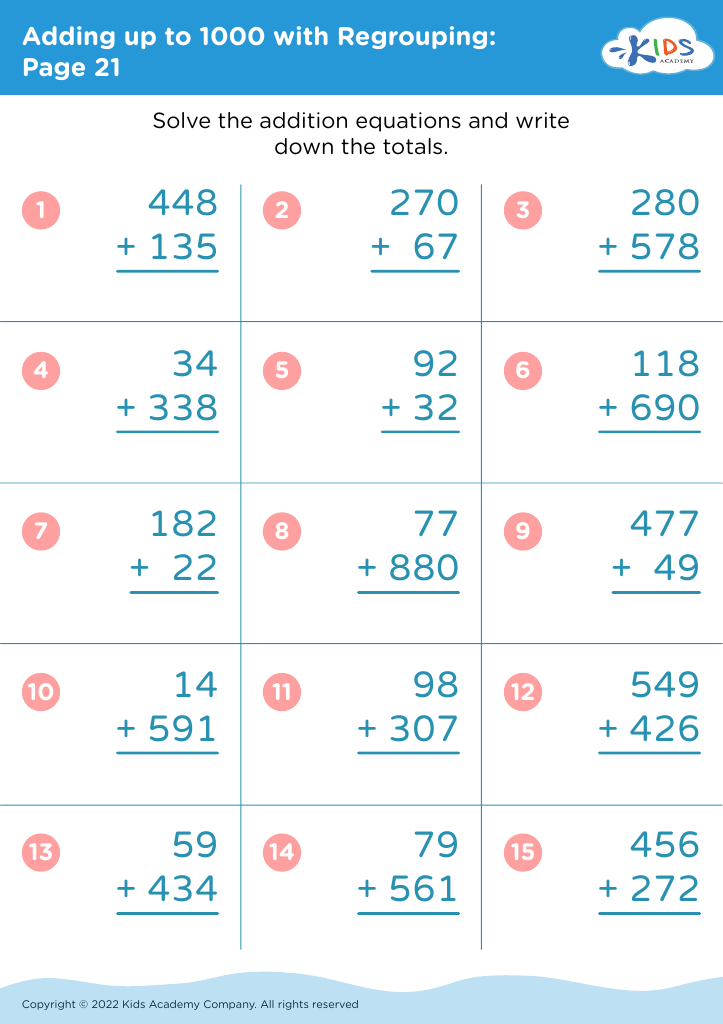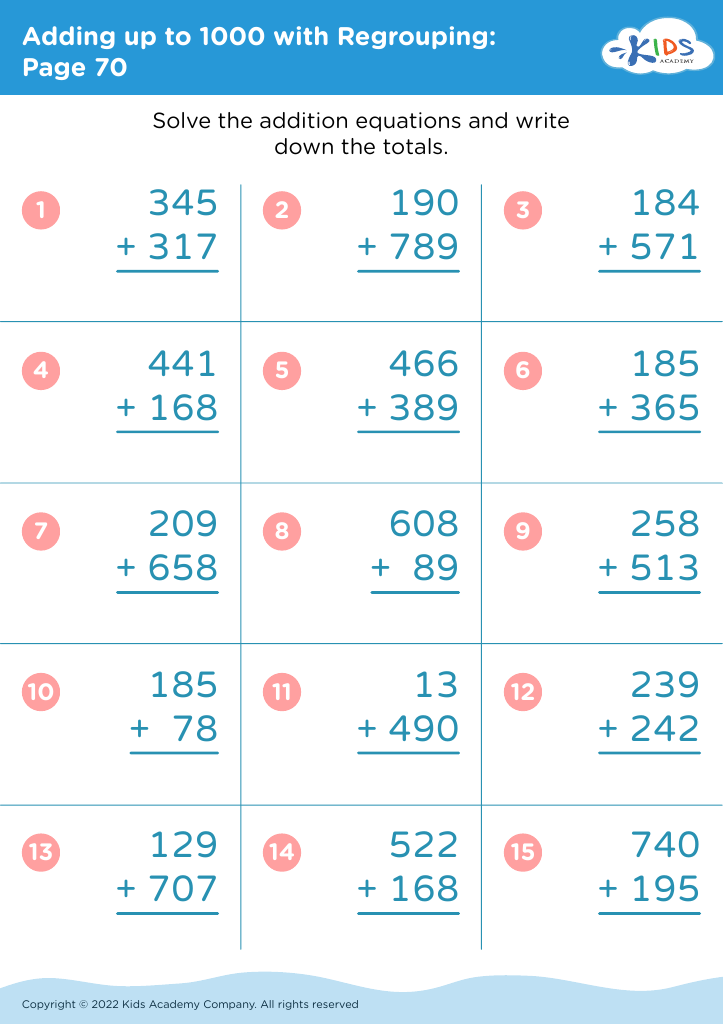Understanding Sequences Adding up to 1000 with Regrouping Worksheets for Ages 6-7
4 filtered results
-
From - To
Discover our "Understanding Sequences Adding up to 1000 with Regrouping Worksheets" designed specifically for children aged 6-7. These engaging worksheets help young learners grasp the concept of number sequences and regrouping, essential skills for mastering addition. Through a variety of fun activities, students will practice identifying and creating sequences, enhancing their understanding of how numbers relate to one another. As they tackle problems that sum up to 1000, children gain confidence in their arithmetic abilities. Our resources support early mathematical development and lay a strong foundation for future learning. Explore our worksheets today and watch your child's skills flourish!
Understanding sequences that add up to 1000 with regrouping is a vital mathematical skill for children aged 6-7. At this age, students are developing foundational numeracy skills, and grasping this concept builds their confidence in math and promotes critical thinking.
Regrouping involves rearranging numbers to make addition easier, which is more than just a procedural skill; it's about understanding place value and number relationships. By learning to work with sequences and adding up to 1000, children become proficient in recognizing patterns and can tackle larger numbers, facilitating a smoother transition to more advanced math concepts.
Parents and teachers should prioritize this topic because it's essential for daily life, such as budgeting, planning, and problem-solving. Mastery of adding with regrouping prepares students for future math skills such as subtraction and multiplication, ensuring they have a strong mathematical foundation. Additionally, a solid understanding of these concepts fosters resilience and perseverance in mathematical problem-solving. Investing time in teaching these skills now can significantly influence students' long-term academic success, making it crucial for parents and educators to cultivate a nurturing learning environment around this fundamental topic.

















